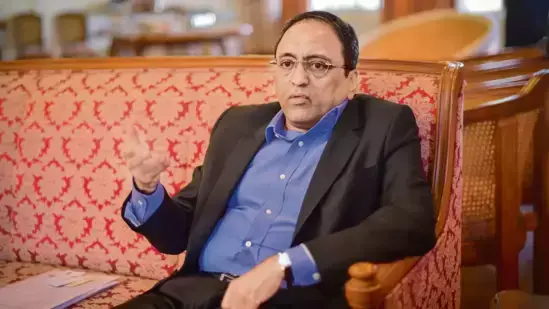
Title: If you ask an IT employee to come to office, he says ‘bye’: L&T Chairman
In an interesting remark, SN Subrahmanyan, the Chairman of Larsen & Toubro (L&T), has highlighted the changing dynamics of the work environment, particularly in the IT sector. While addressing an event, Subrahmanyan expressed his concerns about the increasing trend of employees opting for work-from-home arrangements, stating that it has become increasingly difficult to retain employees who refuse to come to the office.
Subrahmanyan’s remarks came as a response to the ongoing debate about the flexibility of work-from-home arrangements. The Chairman of L&T, a leading Indian multinational conglomerate, emphasized that the work environment has undergone a significant transformation since he joined the company in 1983.
“When I joined L&T in 1983, my boss said, if you’re from Chennai, you go to Delhi and work,” Subrahmanyan said. “Today, if you ask an IT employee to come to the office and work, he says ‘bye’ (he resigns).”
Subrahmanyan’s statement has sparked a lot of discussion among industry experts, employees, and employers alike. While some have agreed with the Chairman’s sentiments, others have criticized his remarks, arguing that he is overlooking the benefits of work-from-home arrangements.
The debate surrounding work-from-home arrangements has been ongoing for some time now. Many employees have expressed their preference for working from the comfort of their own homes, citing increased productivity, reduced commuting time, and better work-life balance as some of the reasons. On the other hand, employers have raised concerns about the lack of face-to-face interaction, difficulty in monitoring employee performance, and potential security risks associated with remote work.
L&T, being a large employer of IT professionals, has been at the forefront of this debate. The company has been experimenting with various flexible work arrangements, including work-from-home and hybrid models, to attract and retain top talent in the competitive IT industry.
Subrahmanyan’s remarks have also been seen as a response to the increasing pressure on IT companies to adopt flexible work arrangements. The Chairman’s statement is a reflection of the changing expectations of employees, who are increasingly seeking work-life balance and flexibility in their work arrangements.
In recent years, there has been a significant shift in the way people work. With the advent of technology, remote work has become a reality, and many employees are now opting for flexible work arrangements that allow them to work from anywhere. This shift has been driven by the increasing demand for work-life balance, as well as the growing recognition of the benefits of flexible work arrangements.
A study by Gallup found that employees who work remotely at least some of the time have higher levels of engagement, productivity, and job satisfaction compared to those who do not work remotely. Another study by Global Workplace Analytics found that employees who work from home at least three days a week are more likely to be satisfied with their jobs and have better work-life balance.
However, not all employees may be suitable for work-from-home arrangements. Some employees may require a more structured work environment, while others may need face-to-face interaction to stay motivated and engaged. Employers, therefore, need to strike a balance between providing employees with the flexibility they need and ensuring that they are productive and motivated.
In conclusion, Subrahmanyan’s remarks highlight the ongoing debate surrounding work-from-home arrangements in the IT industry. While some employees may prefer the flexibility and comfort of working from home, others may require a more structured work environment. Employers, therefore, need to adopt flexible work arrangements that cater to the diverse needs of their employees.
As the Chairman of L&T, Subrahmanyan’s remarks are significant, given the company’s reputation as a leading employer of IT professionals. His statement is a reflection of the changing expectations of employees and the need for employers to adapt to these changing expectations.






